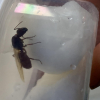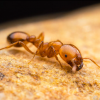Well, most natives have aphid farms too. That’s one of the main reasons why the USDA considers all ants pests.Yes, they're all destroying native ecosystems! Its like keeping mini mass-murderers. They're genocidal maniacs of ants that are in a place where they do not belong. They also completely outcompete other species with their fast growth rates.They also have Argentine ants and Brachyponera chinensis to deal with. Both are destructive invasives as well.
Keeping them is supporting the murder of million or more ants.
Many species of invasive ants are also huge pests. Many have livestock(aphids) that devastate crops.
- Formiculture.com
- Forums
- Gallery
- Members
- Member Map
- Chat





















